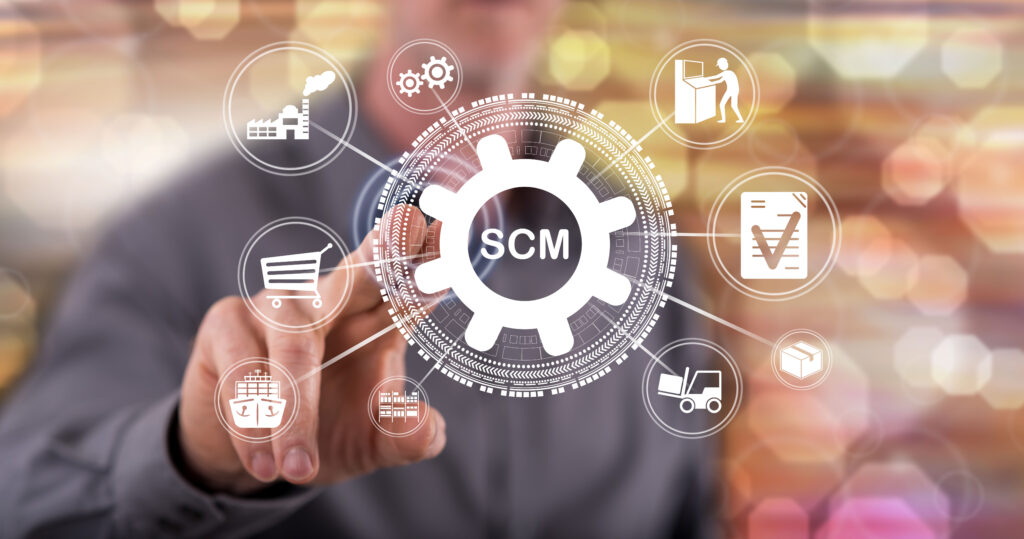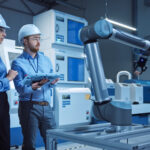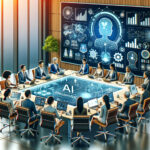Why It Matters
The integration of AI in factory operations is reshaping traditional processes, enhancing flexibility, and promising unprecedented productivity.
The Big Picture
AI is fundamentally altering the factory landscape. Unlike conventional methods that rely on a rules-based approach, AI introduces adaptability and decision-making capabilities to machines. This shift is crucial for:
- Production: Self-optimizing machines, defect detection, efficiency prediction.
- Outside the Factory: Optimizing design in engineering, demand forecasting in supply chain management.
- Inside the Factory: AI-driven predictive maintenance, quality control, and logistics.
Companies that are agile in adopting AI across multiple operational sectors reap the most benefits.
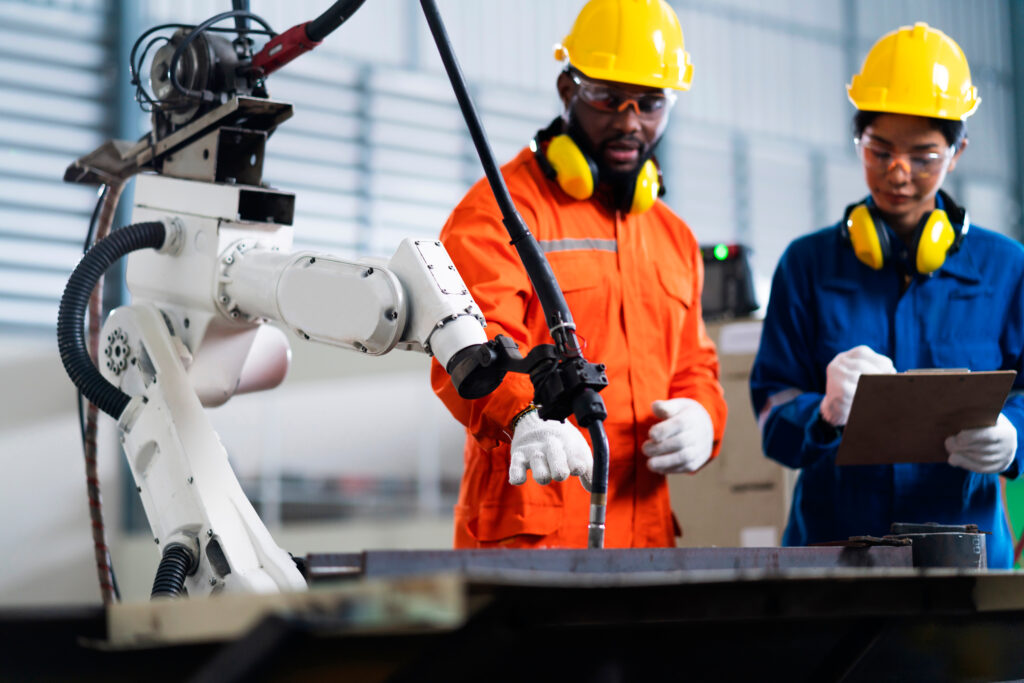
By the Numbers
- 37% of survey participants rate production as the area where AI will have the most impact.
- Expectations for AI’s importance by 2030 range from 81% to 88% across use cases.
- Only 28% have a comprehensive AI implementation roadmap.
More Details
AI implementation is sector-specific and is prioritized differently among companies. While some are making significant headway, the gap between ambition and implementation is evident. In China, India, and Singapore, industries like healthcare and energy are the most ambitious about near-term AI deployment. Yet, a shocking 72% of companies have vague or no plans for AI implementation, highlighting a lack of comprehensive planning.
There’s also a geographic divergence. US companies lead in AI adoption, but China is closing the gap with robust funding. Industries like transportation and logistics, and automotive are the early adopters, whereas process industries are lagging behind.
Moreover, company size plays a pivotal role. Smaller companies often don’t have the resources for AI adoption. However, with falling costs of technology, this is likely to change, yet the capability gap may persist.
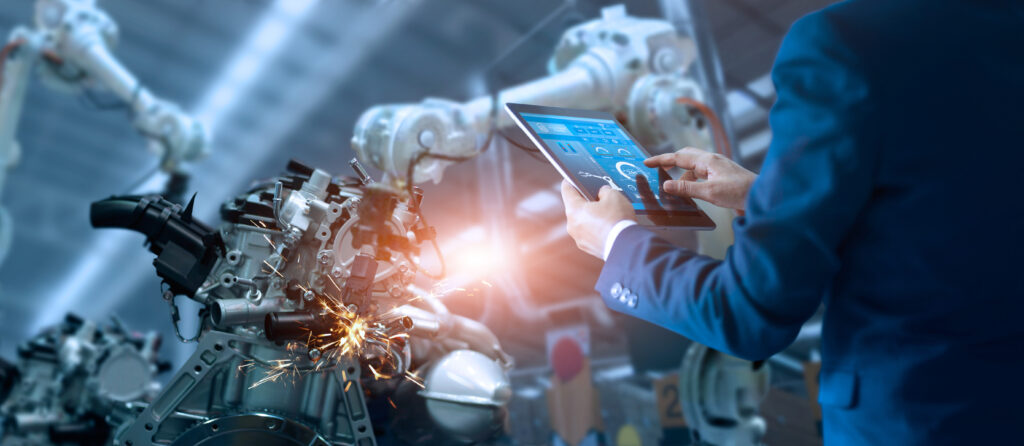
The main use cases of AI in the future of manufacturing
Artificial Intelligence (AI) is revolutionizing business technology, particularly in industrial sectors. By integrating AI, companies can experience enhanced efficiency, flexibility, speed, and innovative operations.
- Potential benefits: Up to a 20% reduction in conversion costs, largely due to increased workforce productivity, and new opportunities for customized, innovative products with shorter delivery times.
- Integral to future factories: AI technology is crucial for developing flexible, technologically enhanced plant structures and processes.
Despite AI’s promising advantages, some executives doubt its efficacy. A recent Boston Consulting Group’s study delves into this skepticism, examining global AI expectations and actual adoption in industries.
- Surveyed over 1,000 executives across various industries, revealing a belief in AI’s importance but a lag in actual implementation.
- Key barriers: Absence of strategic planning, implementation governance, skilled workforce, and IT infrastructure.

Some Key Insights on AI Adoption in Manufacturing and Operations
- Leading adopters: Transportation, logistics, automotive, and technology sectors are ahead in AI integration, whereas process industries trail.
- Geographical disparities: The U.S., China, and India lead in adoption, while countries like Japan, France, and Germany follow, often due to differing perceptions of AI’s benefits.
- Concerning trends: German industries, except the automotive sector, risk falling behind due to lack of detailed AI adoption plans.
AI’s Transformational Role in Operations
- Smart automation: AI enables intelligent decision-making for goal achievement and real-time remote operation management.
- Comprehensive impact: AI is expected to revolutionize various aspects of the value chain, from engineering to customer service, with operations foreseen as the most impacted area.
- Enhanced productivity: AI complements traditional efficiency strategies, supporting efforts like automation and lean management by identifying quality issues and reducing waste.
- Workforce changes: AI reduces the need for manual labor in certain tasks, altering job compositions but also creating new, AI-related roles.
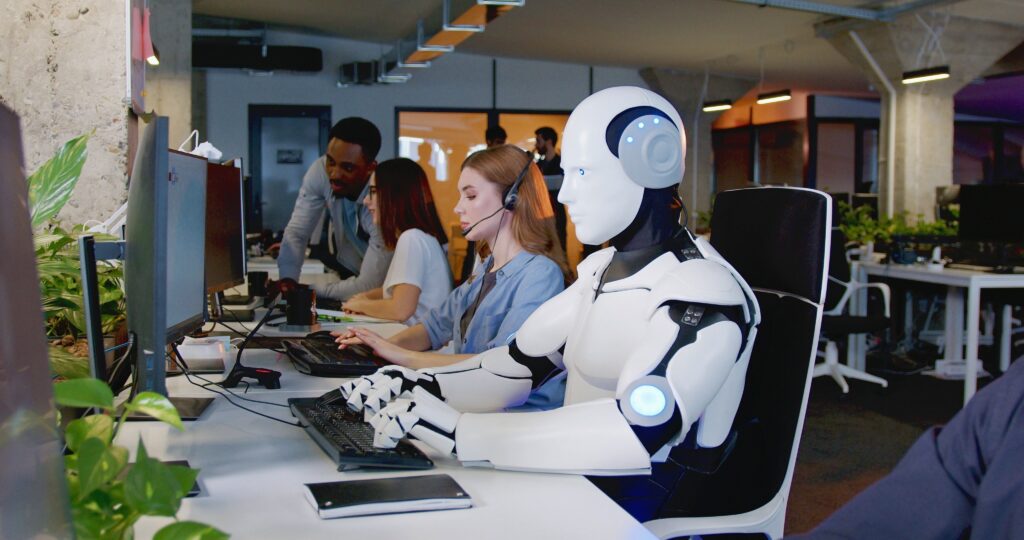
AI Use Cases: Paving the Way for the Factory of the Future
- Paradigm shift: AI moves from a rules-based approach to one that adapts to new situations, allowing for smarter decision-making and increased adaptability.
- Productivity boost: Key AI applications include self-optimizing machines, quality defect detection, and efficiency loss prediction, primarily in production and quality areas of operations.
- Essential integration: To fully reap AI’s benefits, companies must apply it across all functions, integrating data with suppliers and customers.
Go Deeper
- Demand Forecasting in Supply Chain: “AI in Supply Chain Management: Analysis, Trends” – McKinsey’s insights into AI in supply chain management.
- AI Strategy and Roadmap: “Leveraging Artificial Intelligence for Competitive Advantage” – Harvard Business Review article discussing AI strategy.
- AI Governance Models: “AI Governance: A Research Agenda” – Academic paper detailing the importance of governance in AI adoption from Oxford University.
The future belongs to factories that are agile in embracing the transformational capabilities of AI. Adopting AI is not just a technical shift but a strategic imperative for staying competitive.

Experienced Machine Learning, Artificial Intelligence, Data Strategy, Information Technology, and Shared Services Executive
Things that matter:
• five largest ML models created at P&G, with over 10,000 pipeline runs/year
• initiated and operated THE data labeling platform and services for ML at P&G, with 300+ projects and millions of annotations on the platform
• Generative AI strategy for the Global Business Units Shared Services for the Brand, R&D, Manufacturing, Supply Chain, Master Data + eComm functions
• Product Management leadership for enterprise-wide Cloud applications combining data and AI
Education
Harvard Business School Executive Education: Artificial Intelligence (Competing in the Age of AI).
Northwestern University: Executive Strategies to Unlock Enterprise Value in Artificial Intelligence
University of Bucharest: Master of Computer Science from the Faculty of Mathematics
CIIM – Master of Business Administration (MBA) with a focus on Finance
Key Certifications:
AWS Certified Machine Learning – Specialty
Azure ML Artificial Intelligence Certification
Data Camp Certified Data Scientist (Python Track)

